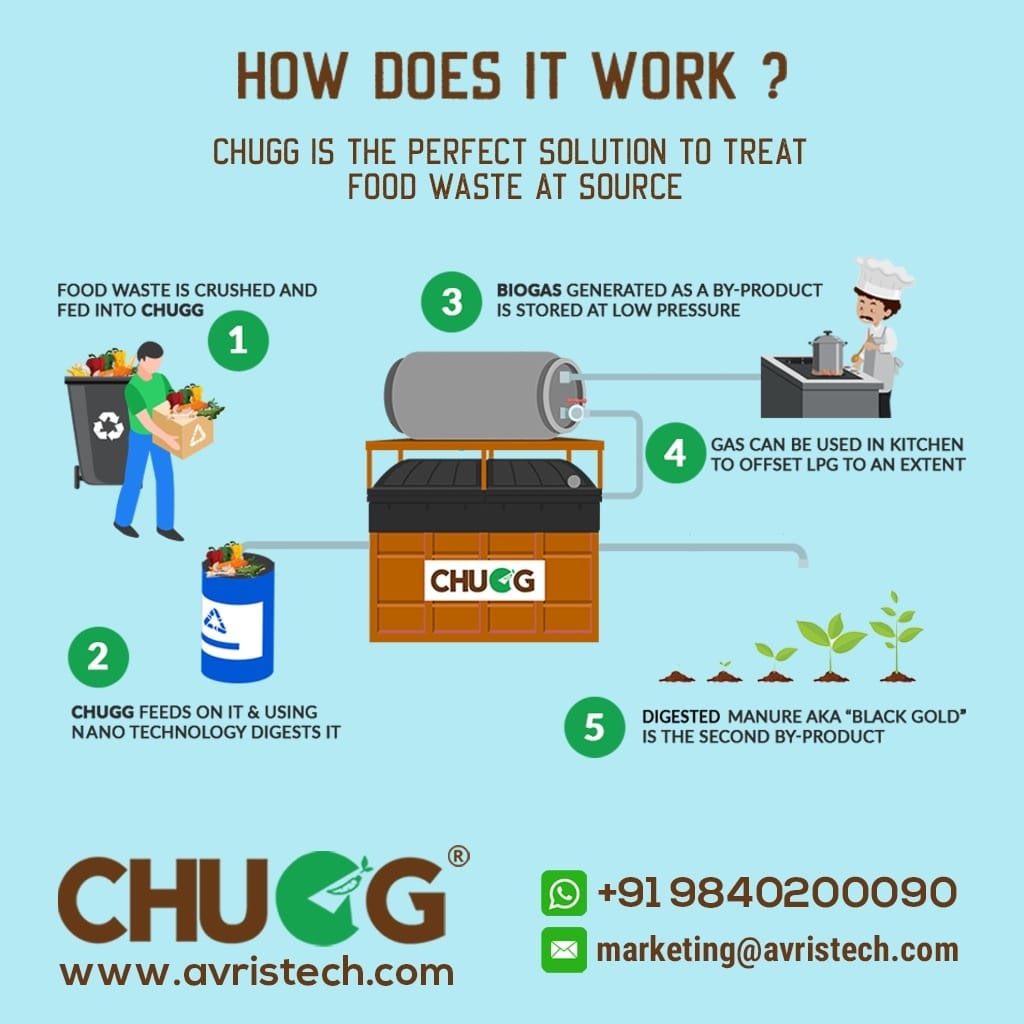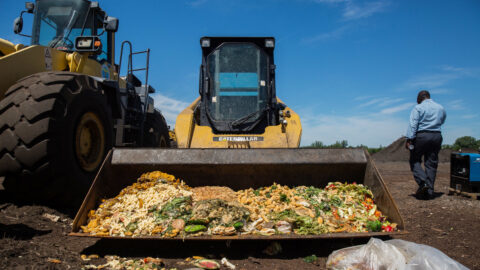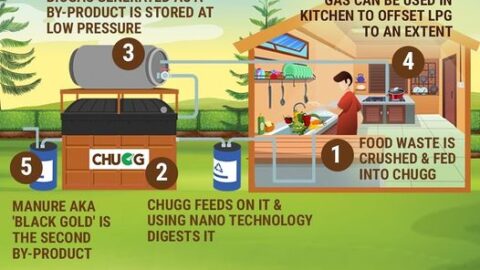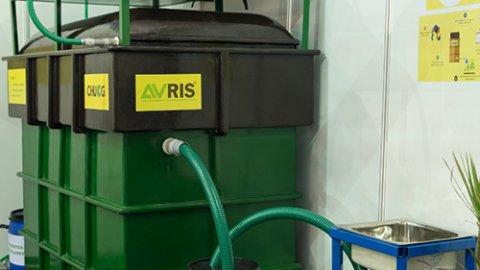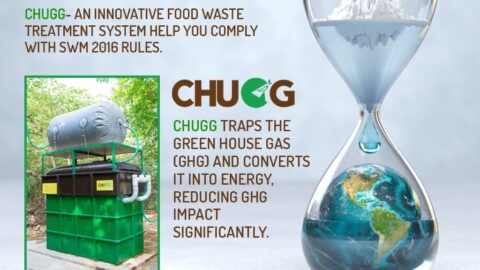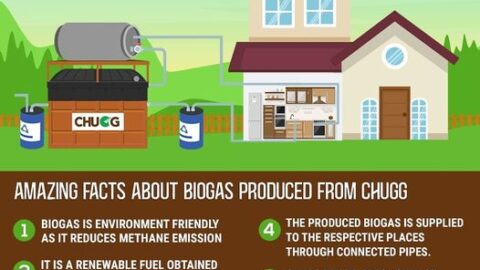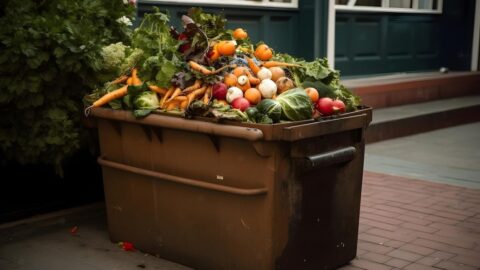In today’s world, characterized by growing environmental awareness and the pressing need for sustainable waste management solutions, biodigesters have emerged as a beacon of innovation. These remarkable systems offer multifaceted advantages in addressing the escalating concern of food waste while simultaneously contributing to a cleaner and more sustainable environment. From efficient waste decomposition to renewable energy generation, let’s delve into the numerous benefits that adopting biodigesters for food waste management brings forth.
Introduction
In a world grappling with the growing menace of food waste and its detrimental impact on the environment, the adoption of sustainable waste management solutions has become paramount. Biodigesters, with their ingenious anaerobic digestion systems, have emerged as a beacon of hope. These systems not only facilitate the breakdown of organic matter but also offer a host of advantages that make them a compelling choice for the management of food waste.
Understanding Biodigesters: An Overview
Biodigesters are intricate systems that harness the power of anaerobic digestion to transform organic waste, such as food scraps, into valuable resources. This transformation takes place in an environment devoid of oxygen, resulting in the production of biogas and nutrient-rich digestate.
The Intricacies of Biodigester Functionality
At the heart of a biodigester’s functionality lies a complex microbial process. Microorganisms work in harmony to break down organic waste into biogas, primarily composed of methane and carbon dioxide. This biogas can be harnessed for energy generation, while the nutrient-rich digestate can be repurposed as a potent fertilizer.
1. Rapid and Efficient Waste Decomposition
One of the standout benefits of biodigesters is their ability to facilitate swift and efficient waste decomposition. Unlike traditional composting methods that can take months, biodigesters expedite the process, curbing the generation of foul odors and deterring pest infestations.
2. Unleashing the Power of Renewable Energy
Perhaps one of the most remarkable advantages of adopting biodigesters is the potential for renewable energy generation. The biogas produced during the anaerobic digestion process can be utilized for various energy-intensive tasks, ranging from electricity generation to heating.
3. Mitigating Greenhouse Gas Emissions
Biodigesters play a pivotal role in mitigating greenhouse gas emissions, particularly methane. By capturing methane during the digestion process and converting it into biogas, these systems contribute significantly to reducing the overall carbon footprint.
4. A Bounty of Nutrient-Rich Byproducts
The digestate generated by biodigesters is a treasure trove of nutrients that can enrich soil quality. This nutrient-rich byproduct serves as an organic fertilizer, enhancing soil fertility and promoting sustainable agricultural practices.
5. Unveiling Economic Cost Savings
Embracing biodigesters can yield long-term economic benefits. The generation of renewable energy through biogas production reduces reliance on non-renewable sources. Moreover, the availability of nutrient-rich digestate can offset the need for expensive synthetic fertilizers.
6.Scalability and Versatility in Application
Biodigesters are versatile solutions that can be adapted to various scales and settings. From compact household units to expansive industrial setups, the adaptability of biodigesters ensures that they find relevance in diverse environments.
7. Banishing Odors and Discouraging Pests
The anaerobic digestion process within biodigesters significantly reduces the emission of unpleasant odors associated with food waste decomposition. Additionally, the swift breakdown of organic matter leaves little time for pests to establish a foothold.
8. Fostering Community Engagement
Community-based biodigester initiatives encourage active participation from local residents. These initiatives not only offer a practical solution to food waste but also foster a sense of community engagement in environmental conservation.
9. Aligning with Regulatory Standards
Biodigesters align seamlessly with waste management regulations and environmental standards. Their adoption demonstrates a commitment to responsible waste disposal and contributes to a greener future.
10. Navigating Challenges and Considerations
While biodigesters hold immense promise, it’s essential to acknowledge and address challenges such as initial setup costs, the need for technical expertise, and ongoing maintenance requirements.
11.Paving the Way for a Greener Future
The advantages of adopting biodigesters for food waste management are far-reaching and impact-ful. From efficient waste decomposition and renewable energy generation to greenhouse gas reduction and nutrient-rich byproducts, biodigesters hold the potential to revolutionize waste management practices and contribute to a more sustainable world
How the Biodigester CHUGG Works?
In the pursuit of sustainable waste management, Avristech has unveiled an innovative solution in the form of the Biodigester CHUGG an innovative food waste treatment system. This state-of-the-art system offers a novel approach to addressing the growing concern of food waste while contributing to a more environmentally friendly future.
Understanding the Biodigester CHUGG
The Biodigester CHUGG is a technologically advanced food waste treatment system designed to transform organic waste, particularly food scraps, into valuable resources. At its core, the Biodigester CHUGG leverages the principles of anaerobic digestion to break down organic matter and harness its potential.
The Biodigester CHUGG Process Explained
The process begins with the collection of food waste, which is then introduced into the Biodigester CHUGG. Once inside, the system creates an oxygen-free environment, kick-starting the anaerobic digestion process. This controlled environment encourages the growth of microorganisms that work harmoniously to break down the organic waste.
Efficient Waste Decomposition through Anaerobic Digestion
Anaerobic digestion is a natural biological process in which microorganisms, such as bacteria, break down organic materials without the presence of oxygen. As these microorganisms feed on the food waste, they produce enzymes that facilitate decomposition, resulting in the breakdown of complex organic molecules into simpler compounds.
Biogas Generation and Renewable Energy
One of the standout features of the Biodigester CHUGG is its ability to generate biogas during the anaerobic digestion process. This biogas, primarily composed of methane and carbon dioxide, is captured and can be harnessed for various applications. It serves as a renewable energy source, contributing to electricity generation and heating.
Nutrient-Rich Digestate for Soil Enrichment
As the microorganisms work their magic, they produce a nutrient-rich byproduct known as digestate. This digestate is a potent organic fertilizer that is rich in essential nutrients such as nitrogen, phosphorus, and potassium. When applied to soil, it enhances soil fertility, promotes plant growth, and reduces the need for synthetic fertilizers.
Advantages of the Biodigester CHUGG
The Biodigester CHUGG offers a plethora of advantages that make it a compelling solution for food waste management:
Efficiency: The anaerobic digestion process within the Biodigester CHUGG ensures rapid and efficient waste breakdown, minimizing odors and pests.
Renewable Energy: The generation of biogas contributes to renewable energy production, reducing reliance on non-renewable sources.
Resource Recovery: The nutrient-rich digestate serves as a valuable resource for soil enrichment and sustainable agriculture.
Environmental Impact: By curbing greenhouse gas emissions and promoting sustainable practices, the Biodigester CHUGG supports environmental conservation.
Environmental Sustainability and Impact
The Biodigester CHUGG aligns seamlessly with environmental sustainability goals. By diverting food waste from landfills, it reduces methane emissions and lessens the burden on waste disposal sites. Additionally, the generation of renewable energy contributes to a cleaner energy mix.
Integration into Various Settings
The adaptability of the Biodigester CHUGG allows it to be integrated into diverse settings, including commercial establishments, residential complexes, and industrial facilities. Its scalability makes it a versatile solution for different waste generation levels.
The Biodigester CHUGG stands as a testament to innovation in sustainable waste management. Through the power of anaerobic digestion, it transforms food waste into valuable resources, ranging from renewable energy to nutrient-rich fertilizer. As Avristech pioneers this technology, it paves the way for a greener and more sustainable future, one where waste becomes a source of value and opportunity.

